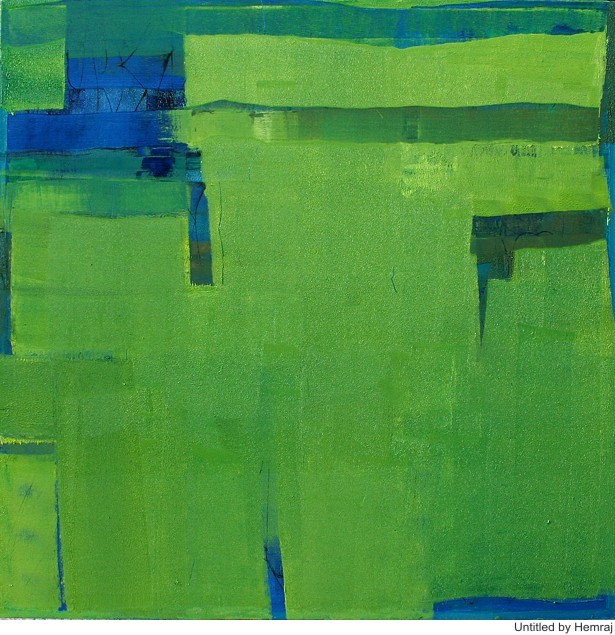Caught Between Arguments And Raucous Laughter: Kunwar Narain

The Fort at Janjira
The fort at Janjira encircled by the sea:
the underwater foundations of the bastions
that have borne the waves’ slapping for centuries
are still solid today.
The palaces of the Abyssinian
slave-trader Surul Khan:
the obstinate roots of wild vegetation
climbing fissured walls,
cannons prone and rusting
on tall gun-platforms.
A memory
of the anchors dropped around the fort, or
his ships laden with slaves
crossing the Arabian Sea—
cheap labor exported
from poor lands to rich lands.
Sometimes history
repeats itself so soon
that a sound in the distance
is clearly audible in the silent nights
on the edge of the sea—
sometimes the sound of coins,
sometimes the sobbing of humans.
The Real Reason
Asleep, but without repose,
with the desire born of intermittent needs
politely under cover.
Or awake—and if so, to what purpose?
The world was so big,
but it proved to be too small
whenever I wished to spread myself even a bit beyond
the ready-made boundaries around me.
Frightened by the sum of vulgar experiences,
I drew myself in
like the neck of a tortoise
under the hard-backed shell of self-confidence,
or else I ran in confusion
toward some abyss that opened out
within the reach of my understanding.
Caught between arguments and raucous laughter,
I sat apart and took stock of the situation
from a special standpoint—
it was pointless to try to keep the world under my control,
it would be better to get up and leave
with a little consternation, saying, ‘What place was that?
From what date to what date. . . ?’
The true bone of contention
was what didn’t happen.
All life long we remained stuck
in the testimonies, the recommendations, the safety-nets
of enervated conversations.
What sort of freedom can one find from minds
imprisoned in their beliefs, cities, businesses—
that no one can traverse
on the inside or the outside?
I ask you one last time—
what was the real matter
that resulted in such a long punishment?
Just the silence? . . . Okay, let it go . . .
What’s there in reality . . . ?
Like a schoolteacher’s net balance
of income and expenses,
reality’s decision is the final judgment—
make do with that and no more, when in bed
stretch your legs only as far as the sheet will go.
I can’t believe
that the difficulty I survived—
that the life I spent—
not by resting my brow against another brow
but by holding my head in my hands—
was such a small thing,
reduced to a document
that listed every pointless antic
but included no crime—
with the sole exception
of my daily self-destruction.
The Flowers of the Neem
A bitter-sweet medicinal smell
would spread throughout the house
whenever the neem in our courtyard blossomed.
The small white flowers
would blow about in the breeze like soap bubbles,
and one or two would stick in Mother’s hair
as she returned from her ritual,
offering water to the holy basil in the yard.
It is odd, but whenever I have thought about those flowers
I have imagined them in the plural.
I never saw them withering—but then
I did not see them bursting
into a riot of color either, like the blossoms
of the gulmohar or the kachnar—but there was
something in their shedding, something even more
modest and dignified, which was neither
joy nor melancholy.
Whenever I recall that huge ancient tree,
I think of the Upanishads—I remember
a clean and simple way of life—that somewhat strange
noble virtuousness in its perpetually peaceful shade,
which cooled us in the summer
and warmed us on winter days. I recall a sharp
but alluring fragrance, like Father’s temperament.
I remember the two or three cots
strung with rough rope that always lay
under the tree for everybody’s use—a childhood spent
playing with its bitter yellow berries. . . .
I remember the cascade dispersed by the wind
on Father’s mortal remains
laid out under the neem
—as though it were a shower of flowers from Mother’s hair—
tiny, tiny blossoms that seem
not tears but drops of consolation.
Maha Bharat
Dhritarashtra, the king: blind.
Vidur, the adviser: his ethics, failed.
Yudhisthir and Duryodhan, hero and villain:
gamblers, both of them.
Shakuni, the cheat: his entry into politics,
to the sound of rattling dice.
No Field of Dharma, no Field of the Kurus:
just the Field of Elections, straight and simple.
The thunderous cacophony of conches
blown by great warriors in chariots
gathered in this field
because of their powerful quests for victory:
the blessed commencement of war.
Waging battle
in the marshes of political factions:
eight religions, eighteen languages, twenty-eight states. . . .
On one side, in a tranquil frame of mind,
standing in a chariot, holding the Gita: Lord Krishna.
On the opposite side,
holding the bow Gandiv in one hand,
and his head in the other: Arjun.
Both watching
a nation transmutate
from ‘India’ to ‘India the Great’.
Won’t It Happen Again?
Will exactly what we were afraid of
happen once again?
Will what we hoped would come about
fail to happen?
Will we continue
to be sold in our bazaars,
slaves to our own stupidities?
Will they buy and ship our children
to distant lands,
only to have
their own futures built?
Will they show us shiny pieces of glass
and dupe us of our gold once more,
exactly as before?
And will we continue like this,
generation
after generation,
to proudly display for them
the ruins of our antiquity—
our temples, our mosques, our gurudwaras?
(Translated from the original Hindi by Vinay Dharwadker.)
Enjoyed the translations 0f Kunwar Narain and others, specially the bilingual format which I think must appeal to for many of us who are caught between languages. I hope at some point these could be collected as a book.